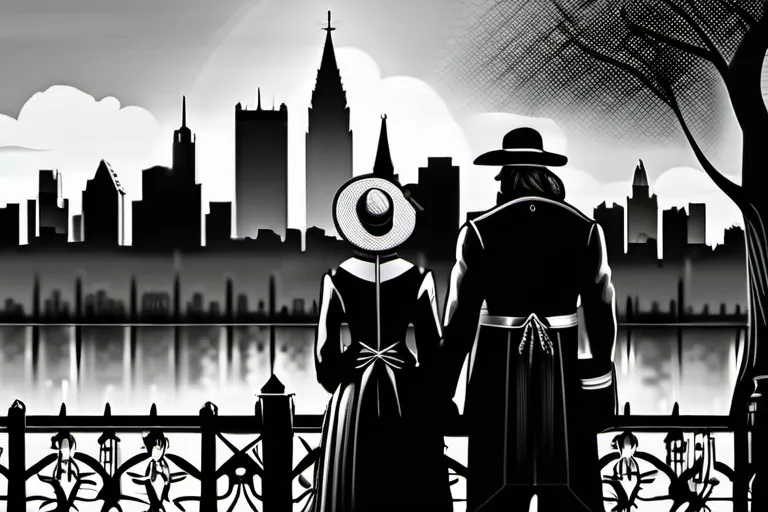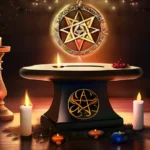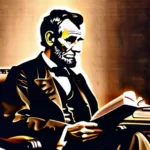Exploring the lasting impact of Puritan religion on modern values and beliefs
Puritan religion, a significant historical movement that emerged in the 16th and 17th centuries, has left an indelible mark on today’s society. This article delves into the ways in which Puritan ideals continue to shape our values, beliefs, and institutions.
The Origins and Beliefs of Puritan Religion
Puritan religion, though rooted in the 17th century, continues to hold significant relevance today. How can something from centuries past still resonate with our lives today? One way to understand this is by delving into the origins and beliefs that defined the Puritans.
Imagine a society where every action was scrutinized for divine approval; a community built on strict religious principles. The Puritans were a group who sought to purify the Church of England from what they considered to be Catholic practices, aiming to create a ‘city upon a hill’ – a perfect society guided by God’s will.
Key beliefs such as predestination and the importance of individual moral conduct were central. Predestination, which suggested that individuals were chosen by God for salvation before birth, influenced their every decision and action. This belief in predestination was not just a theological concept but a lens through which they viewed the world.
Their practices included regular church attendance, strict adherence to biblical laws, and community service. The daily lives of Puritans were intertwined with religious duties, making every moment a potential act of worship or sin. Their approach to community was also unique; it wasn’t just about social gatherings but about collective responsibility for each other’s spiritual well-being.
Now, think about how these beliefs and practices have shaped modern society. The emphasis on individual morality can be seen in contemporary discussions around ethics and personal conduct. Even the idea of community service, a staple in many religions today, finds its roots deeply embedded in Puritan values.
Their strict adherence to biblical laws has led to debates over the role of religion in public life, echoing through today’s legal and political discussions about religious freedom and morality. The concept of predestination, while perhaps not as literal, still influences modern thinking on destiny and fate.
In essence, understanding Puritan religion helps us see how deeply these historical beliefs have woven themselves into the fabric of our current society. It’s like looking at a tree; its roots may be ancient, but they continue to provide nourishment and strength to its trunk, which is today’s world.
Puritan Influence on Modern Values
Puritan religion, with its profound emphasis on moral integrity and ethical behavior, continues to shape our modern values and beliefs in ways that might not be immediately apparent. Have you ever wondered why honesty is such a cherished value in many Western societies? Or perhaps pondered the origins of concepts like work ethic and community responsibility? The roots of these deeply ingrained norms can be traced back to the stringent moral codes established by Puritans during their colonial era.
Imagine, for a moment, that each day you wake up with a list of dos and don’ts meticulously crafted centuries ago. These guidelines weren’t just about religious observance; they were about living a life in harmony with the will of God. The Puritans believed that every action had spiritual significance, making their daily lives a reflection of their faith. This idea—that every decision matters—has undoubtedly influenced the way we approach responsibility and accountability today.
Consider the concept of integrity. To the Puritans, it was not just about being truthful; it was about living in accordance with one’s moral compass. They saw themselves as stewards of a divine mission, which included upholding principles that would guide their actions. How does this relate to today? Isn’t our society often judged by its commitment to transparency and honesty? The Puritans’ emphasis on individual integrity can be seen as a precursor to modern ethical standards.
Moreover, the Puritan belief in hard work and diligence has left an indelible mark on American culture. They saw labor not just as a means of survival but as a way to honor God through dedication and productivity. This perspective on work ethic is evident in many facets of contemporary society, from corporate cultures that celebrate long hours and high output to the notion that success is often measured by one’s professional achievements.
It’s worth asking ourselves: How much of our modern values can we trace back to these early settlers? Are we still influenced by their moral codes without even realizing it? The echoes of Puritan values reverberate through time, shaping not just religious practices but the very fabric of society. Understanding this legacy helps us see how deeply intertwined history and morality are in the construction of our current social and ethical frameworks.
The Role of Puritan Religion in American Politics
Imagine a world where every political decision is shaped by principles that were first conceived centuries ago—where the very foundations of governance and democracy are rooted in the beliefs of a religious group from colonial America. This is not just a historical curiosity; it’s a reality that continues to impact American politics today, all thanks to Puritan religion. How did this old-time faith manage to leave such a lasting imprint on our modern political landscape?
Think about it: the Puritans were known for their strict adherence to religious and moral laws. Their belief in a literal interpretation of the Bible influenced everything from government structures to economic policies. For instance, the concept of ‘covenant’, which they used as a basis for political legitimacy, can be seen echoed in modern democratic principles where citizens participate in governing themselves through elected representatives.
The idea that laws should reflect divine will was not only central to Puritan society but has also seeped into American legal and political discourse. From the separation of church and state to debates over freedom of speech, many contemporary issues can be traced back to these early settlers’ beliefs. How did they manage to embed their religious convictions so deeply into the fabric of our nation?
The answer lies in their understanding of governance as a moral endeavor, where leaders were seen not just as political figures but as stewards responsible for guiding society towards virtue and righteousness. This perspective has influenced American politicians who strive to uphold certain values, often invoking Puritan ideals even when they no longer strictly adhere to the original religious practices.
In today’s polarized political climate, these historical roots offer a lens through which we can better understand our current debates and divisions. How do you think Puritan religion has shaped American politics? Is it possible that this legacy continues to influence our society in ways we might not even realize?
Puritanism and Education
Imagine stepping into a classroom where every lesson is a testament to discipline, hard work, and moral integrity. Could this be a scene straight out of a Puritan town in 17th-century America? Surprisingly, the principles that guided their educational system are woven deeply into the fabric of modern educational practices today. But why does Puritan religion matter so much in our schools?
Consider the emphasis on reading and writing that was a cornerstone of Puritan education. They believed that understanding scripture required literacy, leading to an early focus on these skills. Today, this tradition lives on through mandatory literacy programs designed to ensure all students can read and write effectively. Could it be that the value placed on education by our forefathers has shaped how we view learning in contemporary society?
The idea of educating the whole person—mind, body, and spirit—is another aspect of Puritan education principles that still resonates today. They believed that education should not only teach facts but also instill moral values. This holistic approach is evident in many modern curriculums that strive to balance academic knowledge with character development. Do we still see this as a critical component of what it means to be educated?
Moreover, the Puritans’ focus on self-discipline and perseverance can be seen in today’s emphasis on grit and resilience. They taught their children that success came through hard work and dedication, qualities that are celebrated in modern educational settings where students are encouraged to face challenges head-on. Is it possible that these principles have helped shape our understanding of what it takes to succeed in life?
As we reflect on the legacy of Puritan religion in education, it becomes clear that their emphasis on discipline, moral integrity, and whole-person development continues to influence how we approach teaching and learning today. Could there be more lessons from these early educators waiting to be discovered and applied in modern times?
The Influence of Puritan Religion on Art and Literature
Imagine stepping into a world where every stroke of the brush, every word penned, and every piece of media tells a story rooted in the Puritan ethos. How has this 17th-century religious movement left an indelible mark on our contemporary art and literature? Let’s delve into the complexities of this question.
Consider the ‘purification’ of art during the Puritan era—clean lines, simple forms, and a focus on moral themes. Today, we see echoes of this in minimalist movements where artists like Donald Judd or Dan Flavin create works that are stark yet profound, much like the Puritans’ straightforward approach to life.
But it’s not just about ‘clean art’. The Puritan emphasis on the power of the written word can be seen in modern literature. Think of Jonathan Franzen or Jhumpa Lahiri—writers who delve into the complexities of human emotion and societal norms, much like how Puritans explored their inner struggles through sermons and writings.
Moreover, consider the impact on contemporary media. Television shows and movies often grapple with themes of morality, personal responsibility, and the struggle between good and evil—a narrative thread reminiscent of Puritan storytelling. Think of series like The Handmaid’s Tale, where the dystopian world serves as a cautionary tale much like the tales told by Puritans to warn against moral decline.
It’s fascinating to see how these Puritan ideals continue to shape our modern expressions of creativity. They remind us that despite the passing of centuries, certain values and concerns remain timeless. From the stark minimalism of art to the exploration of moral dilemmas in literature and media, the influence is undeniable.
So, as we navigate the complexities of today’s world, it’s worth reflecting on these Puritan legacies. How do they guide our own creative expressions? And what lessons can we draw from their enduring impact?
The Enduring Legacy of Puritan Religion
The enduring legacy of Puritan religion is like a deep-rooted tree, its branches and leaves spreading far beyond the original planting ground. How can we ignore the influence it has on modern values and beliefs? Is not every moral code, ethical standard, or societal norm in some way a descendant of those stern yet noble principles?
Consider the concept of integrity. In a world often characterized by complexity and confusion, Puritans taught us to be honest and true. Their relentless pursuit of moral purity has become ingrained in our very essence as individuals and communities. Can we really separate their influence from contemporary concepts like transparency and authenticity?
Or think about the value of hard work. The famous saying ‘a day’s labor for a day’s wage’ echoes through history, shaping not just economic practices but also our sense of self-worth. Are these principles merely coincidental, or are they a direct lineage from Puritanical teachings?
Their emphasis on education, too, has had profound impacts. The founding of Harvard University and other esteemed institutions can be traced back to their vision of creating centers of learning. Today, the pursuit of knowledge is valued in every corner of society, yet we often overlook its roots.
In exploring these connections, it’s impossible not to wonder: How would our modern world look without the influence of Puritanical ethics and teachings? Would we still hold dear values like honesty, discipline, and hard work? The answer seems to be no. Thus, understanding this legacy is crucial for grasping both where we’ve come from and where we’re headed in shaping a better future.
Their moral codes have evolved but not disappeared; they’ve transformed into the fabric of our social norms and personal beliefs. So, as we navigate the complexities of today’s society, let us remember the enduring lessons left by these early settlers. For their spirit lives on, guiding us through the challenges of the present and shaping the future.
Conclusion
 Understanding the roots of Puritan religion can provide valuable insights into contemporary culture and help us appreciate the enduring influence of this influential movement.
Understanding the roots of Puritan religion can provide valuable insights into contemporary culture and help us appreciate the enduring influence of this influential movement.











